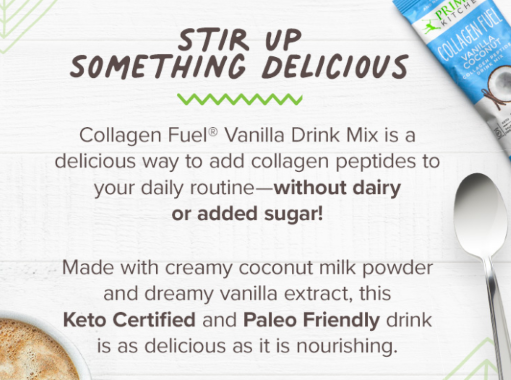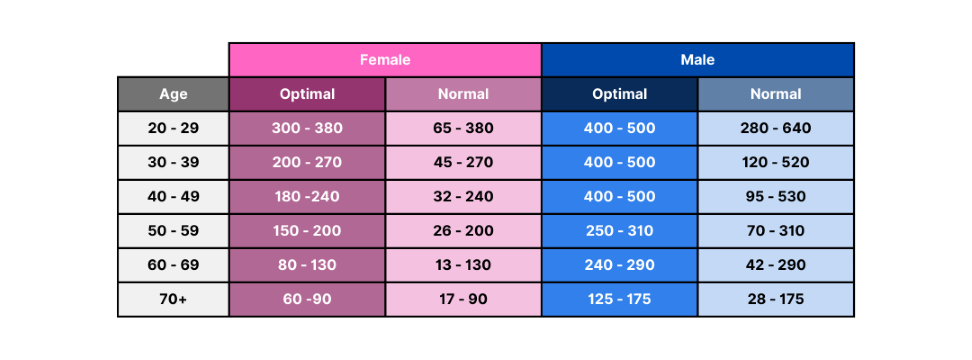Issue #354: Brand New Alzheimer's Study
Good morning. It’s Tuesday, June 11th.
Stat of the Day
The number of McDonald’s in the U.S. - that’s one for every 25,000 Americans. Houston is the “winner” with 126. Dammit Michael Keaton, I mean Ray Kroc, for putting Big Macs and those delicious fries absolutely everywhere. (source)
Learn
New Study on Alzheimer’s
When you sign up for this newsletter we ask if you want to share your goal with us - why you want to get an email about longevity 3x a week?
The overwhelming majority of readers tell us their biggest fear is losing their ability to think clearly - fear of dementia.
No one wants heart disease or cancer or to fall down. But at least we can figure out a way to work through the pain, then understand what it’s going to take to recover, and have the mental strength and resilience to regain our health.
But when we lose our ability to remember, to reason - that’s scary.
A study just came out that might be a game-changer when it comes to brain health. Why is it so exciting?
68.2% of all NIH studies are funded by industry players - like food and pharma companies. That’s why most answers to health issues are drugs.
But this study set out to show the power of lifestyle changes on our aging brain.
A little background - the study only had 51 people (not huge) and lasted only 20 weeks (not long). So we need more research to confirm these conclusions. But…the early results are striking.
The study split the participants - those who were 45-90 years old (average age 73) who already had diagnosed “mild cognitive impairment due to dementia” - in half, into a lifestyle group and a control group.
The lifestyle group had the following interventions*:
Nutrition: A vegan diet with no sugar, alcohol, refined carbs. All food was delivered to participants with access to a virtual nutritionist
Movement: Daily 30 min strength training with incentives to go on walks from virtual trainer
Mindset: 1-hr daily stress management using meditation, deep breathing or yoga
Connection: 3x per week support groups to talk how they’re doing/feeling
There were also supplements for this group - including: multivitamin, omega-3 fatty acids with curcumin, coenzyme Q10, vitamin C and B12, magnesium, a probiotic and Lion’s mane mushroom.
The control group lived their life as is without any recommended changes.
*Looks an awful lot like the 9 elements of longevity 😉
So what happened???
1. In the control group no one experienced any improvement in cognitive function or less amyloid plaque in their brain scans, some participants worsened in the 5 months.
2. In the lifestyle group 10 of the 24 participants improved their cognitive function and the amyloid plaque had decreased in their scans. This is real evidence the disease was, if not in full remission, at least stopped in its tracks.
Ok - so on the one hand that’s amazing. Even at a late stage of brain disease we can significantly mitigate the effects of dementia by everyday lifestyle decisions.
How does this work?
The researchers believe that microglial cells consume this amyloid plaque and we stimulate these cells with a happy gut (remember that gut-brain connection) from eating the right food, exercise*, and good sleep.
*This same week there was another study from Dr. Luisa Nicola showing the connection between more strength training and brain health.
But let’s not forget - 14 of the participants did NOT show any improvement.
Was this an issue of adherence i.e., not sticking with the protocol? (1 participant dropped out of the study because they “couldn’t stay away from McDonald’s”)? Was 5 months not long enough? Do these interventions only work for people with specific genetics?
Also - which of the interventions was most important? Do we need to do all of them? Do you need to be vegan? Do you need to take all the supplements?
The answer = we don’t know. Much more research is needed.
But I’ll just say this...
Last week the FDA approved another drug for Alzheimer’s. Even experts say you will barely see the benefits - but the risks are brain swelling and bleeding.
Look, I’m not opposed to drugs - the future solution for optimal brain health might very well be a combination of lifestyle and drugs.
But in the meantime, why not go ahead and get on board with what that lifestyle group was doing?? Be aware there are potential side effects - you might have more energy, get stronger, sleep better, and feel more connected to others.
And you just might have a healthier brain.
Try
The Pump For Your Brain
Feel like hitting the gym this summer? If lifting is so good for your brain (see above), then here’s a good plan…
Test out your strength right now - grip strength, number of pull-ups, squat or deadlifts, even bench press - whatever works best for you. (here’s some inspiration)
Then commit to making sure you’re stronger at the end of 2024 (that’s just about half the year left).
Your brain will thank you.
Thrive25 Partner Spotlight
We’re only biased because it’s good. Our friends at Primal Kitchen make one of the highest quality collagen supplements on the market and they’re always doing regular testing to keep out the heavy metals that invade too many of these unregulated supplement.
So try Primal Kitchen’s Collagen Fuel - no artificial sweeteners, dairy, whey or soy, and 100% paleo and keto friendly.
Enjoy a 10% discount off your entire order at Primal Kitchen. Don’t miss out - click HERE to claim your discount today!
Measure
DHEA-Sulfate
Our adrenal glands make dehydroepiandrosterone (DHEA) sulfate, which the body then converts into androgens (testosterone and androstenedione) and estrogen. Measuring DHEA-S provides insight into adrenal function and overall hormonal balance, as well as visibility into stress levels.
What’s my value
The range for DHEA-S is not static - it peaks just before puberty and then decreases as you age. And DHEA-S is related to sex hormones, so, you guessed it - it’s also different by gender. Check out the following table as a guide - all values are in micrograms per deciliter (µg/dL).
How to test
Prep: Typically, no special prep is needed, though some physicians may advise fasting. Inform your doctor about all medications and supplements you are taking
Reliability: Blood tests for DHEA-S are generally reliable. However, levels can fluctuate due to stress, illness, and other factors
Cost: The test should be free if you have insurance coverage. Without insurance, the test can range from $50 to $150 based on healthcare provider and location
Interpreting results
Elevated or decreased levels can indicate various health issues, including adrenal disorders, aging, and endocrine system dysfunctions.
Low Levels: Could indicate adrenal insufficiency, chronic stress, aging, or hypopituitarism
High Levels: Might suggest adrenal hyperplasia, polycystic ovary syndrome (PCOS), or tumors of the adrenal gland
How to impact
Lifestyle Changes: Diet modifications, regular exercise, and stress management techniques can help regulate hormone levels
Medical Consultation: Seek advice from an endocrinologist or healthcare provider to explore underlying causes and appropriate treatments
Follow-Up Tests: Additional testing may be needed to further investigate abnormal results and monitor changes over time
Laugh
Andy is Smart?
In the News
Muscle Innervation: Exercise is good for the brain. We’ve heard this, we’ve read this - we know this. Now we know why. (Inverse)
New Rule of Biology: Here’s the latest acronym to remember - SAI. It stands for “Selectively Advantageous Instability.” Instability, not stability, helps with gene evolution and can help combat aging, until there’s too much. (Source)
Reversing (Ovarian) Aging: A recent study showed NAD+ (Nicotinamide adenine dinucleotide) precursors NMN (Nicotinamide Mononucleotide) and NR (Nicotinamide Riboside) helped reverse ovarian aging in middle-aged rats. (Lifespan.io)
Thanks for joining us today!
Check out the latest videos on our YouTube channel
Got feedback, recommendations or stories to share? Tell us what’s on your mind here
Want this direct to your inbox? Sign up here
Why Thrive25
We’re 40-something dads that felt our bodies and minds start to slow down and we’re not ready for that. We found too much information on every subject. So we started Thrive25 to transform what we’ve learned into something useful for the rest of us to spend just 3-5 min a day to optimize our health & longevity.
This newsletter is for you and we truly value your feedback. Never hesitate to reach out to us at team@thrive25.com.
To health!
Sign up for free:
The information in this newsletter is for informational purposes only and may not be appropriate or applicable based on your individual circumstances. Thrive25, Inc. does not provide medical, professional, or licensed advice. Please connect with your healthcare professional for medical advice specific to your health needs.







